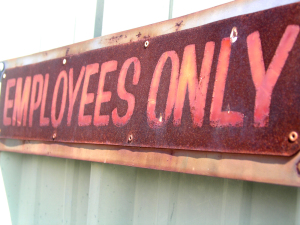Employees and independent contractors have separate provisions and exemptions under California employment law, so it is important for both employers and workers to understand the differences between the two classifications. No one wants to be denied their rights or have to face legal action, because they chose or received the wrong employment status.
In California, there is no official definition of “independent contractor.” Instead, each agency (Employment Development Department (EDD), Division of Labor Standards Enforcement (DLSE), etc.) has its own set of definitions, which may classify a worker as an employee or an independent contractor. This is why it is important for employers to fully analyze the relationship of the worker to the business, under all California employment laws that may apply.
Employees, on the other hand, typically receive benefits that independent contractors do not, such as: minimum wage guarantees and overtime pay, meal periods and rest breaks, workers’ compensation, paid vacation, and other benefits. Employees receive additional benefits but have a different relationship with the employer than a contractor.
Employees are Not Independent Contractors, and Why It Matters
If an employer classifies a worker as an employee but does not provide all of the employee-related benefits, then the worker can take legal action against the employer. Similarly, employers cannot classify a worker as an independent contractor just to avoid giving benefits and paying taxes, yet expect the worker to perform duties or hold responsibilities of an employee.
Due to the various California agencies and employment laws, it can be helpful to speak with an employment attorney about your rights and responsibilities. For a referral to an attorney in San Diego, please reach out to the Lawyer Referral and Information Service at (619) 231-8585, via online chat, or with an online request form.
